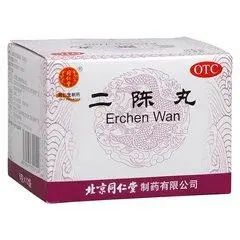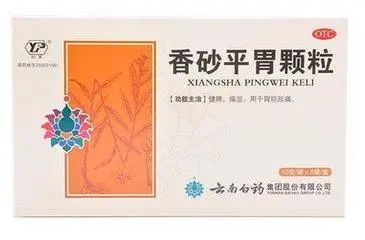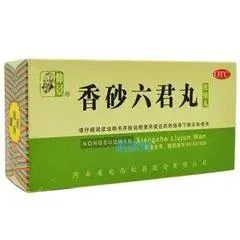Traditional Chinese Medicine (TCM) expert shares health knowledge
Click below to follow for free ↓↓↓
The phlegm-damp constitution is characterized by an excess of dampness and turbidity, primarily manifested as obesity, a soft and full abdomen, oily skin, a dull yellow complexion, prone to acne, excessive sweating that feels sticky, chest tightness, abundant phlegm, easy fatigue, a preference for rich, sweet, and sticky foods, slightly puffy eyelids, a generally enlarged tongue with a thick, white, greasy coating, a sticky or sweet mouth, a heavy body feeling, normal or loose stools, infrequent or slightly turbid urination, intolerance to humid weather, and a slippery pulse.

The causes of phlegm-damp constitution include lack of exercise, excessive nutrition, binge eating, staying up late, frequent late-night snacks, overly salty diets, and consuming too many cold and frozen foods during youth, which can damage the spleen and stomach, gradually leading to a phlegm-damp constitution. The spleen is the source of phlegm production; when the spleen and stomach are weak, they fail to transform and transport, causing water and dampness to stagnate and congeal into phlegm, which is essentially an accumulation of body fluids. Additionally, a deficiency in the body combined with external pathogens can impair lung qi, leading to phlegm accumulation in the lungs. Therefore, the production of phlegm is primarily related to the spleen and lungs. Individuals with a phlegm-damp constitution are prone to diseases such as obesity, diabetes, hypertension, hyperlipidemia, or fatty liver.
How to regulate phlegm-damp constitution?
Those with a phlegm-damp constitution should avoid dampness in daily life, regulate emotions, participate in physical exercise, control food intake, especially avoiding overeating at dinner, and avoid rich, sweet, salty, and greasy foods. It is advisable to consume foods that strengthen the spleen and resolve dampness, regulate qi and transform phlegm, preferably warm and drying foods such as cucumber, winter melon, white radish, coix seed (yi yi ren), water chestnut (qian shi), yam (shan yao), white lentils (bai bian dou), adzuki beans (chi xiao dou), hawthorn (shan zha), lotus leaves (he ye), ginger (sheng jiang), chrysanthemum (tong hao), bamboo shoots (zhu sun), finger citron (fo shou), lily (bai he), scallions (cong), mustard greens (jie cai), leeks (jiu cai), nori (zi cai), shepherd’s purse (ji cai), kelp (hai dai), crucian carp (ji yu), silver carp (lian yu), ribbon fish (dai yu), loach (ni qiu), loquat (pi pa), pomelo (you zi), pomegranate (shi liu), and apricot (xing zi).
Individuals with a phlegm-damp constitution can use certain herbal medicines for regulation. To eliminate phlegm-damp from the lungs and upper jiao, use Chen Pi (dried tangerine peel) and Bai Jie Zi (white mustard seed); for phlegm-damp in the middle jiao, use Chen Pi, Dang Shen (Codonopsis), and Bai Bian Dou; Adzuki beans primarily help to expel dampness through urination. Other herbs that have warming, drying, and damp-resolving properties include Fu Ling (Poria), Ban Xia (Pinellia), Cang Zhu (Atractylodes), Hou Po (Magnolia bark), Bai Dou Kou (white cardamom), Cao Guo (Tsaoko fruit), Ze Xie (Alisma), Gua Lou (Trichosanthes fruit), Bai Zhu (Atractylodes), and Che Qian Zi (Plantago seed). Daily, one can use Fu Ling, Qian Shi, Bai Bian Dou to make soup, or eat a porridge made of Qian Shi, yam, and coix seed to strengthen the spleen and resolve dampness.
The generation of phlegm-damp is most closely related to the lungs, spleen, and kidneys, thus individuals with a phlegm-damp constitution should focus on tonifying these three organs. If the lungs fail to disperse and descend, one can use Er Chen Wan (Two Aged Pills) to resolve phlegm; if the spleen is weak and unable to transport, one can use Liu Jun Zi Tang (Six Gentlemen Decoction), Xiang Sha Ping Wei San (Aromatic Sand to Calm the Stomach Granules), or Xiang Sha Liu Jun Wan (Aromatic Sand Six Gentlemen Pills); for spleen and stomach qi deficiency, one can use Bu Zhong Yi Qi Wan (Tonify the Middle and Benefit Qi Pills); for strengthening the spleen and resolving dampness, one can use Shen Ling Bai Zhu Wan (Ginseng and Poria Pills) or Mu Xiang Shun Qi Wan (Aromatic Wood to Regulate Qi Pills); for kidney yang deficiency and poor transformation, one can use Ji Sheng Shen Qi Wan (Kidney Qi Pills) or Jin Gui Shen Qi Wan (Golden Cabinet Kidney Qi Pills).
1. Er Chen Wan: Composed of Chen Pi, Ban Xia (processed), Fu Ling, and Gan Cao (licorice). It dries dampness, transforms phlegm, and regulates qi and the stomach. It is used for cough with abundant phlegm due to phlegm-damp stagnation, chest and abdomen fullness, nausea, and vomiting. Note: Not suitable for dry cough due to lung yin deficiency.

3. Xiang Sha Ping Wei Granules: Composed of Cang Zhu (fried), Chen Pi, Gan Cao, Hou Po (ginger-fried), Xiang Fu (vinegar-fried), and Sha Ren. It strengthens the spleen and dries dampness. It is used for stomach fullness and pain. Use with caution in those with spleen and stomach yin deficiency, which may present as poor appetite, dry mouth, and heat in the palms and soles.

4. Xiang Sha Liu Jun Wan: Composed of Mu Xiang, Sha Ren, Dang Shen, Bai Zhu (fried), Fu Ling, Zhi Gan Cao, Chen Pi, and Ban Xia (processed). It benefits qi, strengthens the spleen, and harmonizes the stomach. It is used for spleen deficiency with qi stagnation, indigestion, belching, reduced appetite, and abdominal fullness with loose stools.

5. Bu Zhong Yi Qi Wan: Composed of Huang Qi (honey-fried), Dang Shen, Gan Cao (honey-fried), Bai Zhu (fried), Dang Gui, Sheng Ma, Chai Hu, Chen Pi, Sheng Jiang, and Da Zao. It tonifies the middle and benefits qi. It is used for fatigue, weakness, and organ prolapse. Note: Not suitable for those with exterior syndrome of chills and fever or those with fullness due to overeating.
6. Mu Xiang Shun Qi Wan: Composed of Mu Xiang, Sha Ren, vinegar-fried Xiang Fu, Bing Lang, Gan Cao, Chen Pi, Hou Po, Zhi Ke (fried), Cang Zhu (fried), Qing Pi (fried), and Sheng Jiang. It promotes qi, transforms dampness, and strengthens the spleen and harmonizes the stomach. It is used for damp turbidity obstructing qi mechanism, nausea, and belching. This medicine is composed of aromatic and drying ingredients; use with caution in those with dry mouth, dry tongue, and heat sensation in the palms and soles due to yin fluid deficiency.
Note: Some text and image resources in this article are sourced from the internet. The purpose of reposting this article is to convey more information. If there are any errors in source attribution or infringement of your legal rights, please immediately leave a message in the background to notify us. If the situation is verified, we will delete it promptly and apologize to you.Previous highlights: How to regulate spleen deficiency, how to choose Chinese patent medicine? Tong Ren Tang doctors remind: Three major types, treat according to symptoms! Why do you still have insomnia after taking a truckload of Chinese patent medicine? Doctors: Four types of medicine to take correctly, insomnia will be resolved effortlessly! Ten types of Chinese patent medicine for clearing heat, insomnia, night sweats, dizziness, and tinnitus, selected based on syndrome differentiationDirector Zhao shares health and wellness knowledge
Click below to follow for free ↓↓↓
Editor shares good articles with friends
1. Unclog blood vessel blockages, two types of Chinese medicine boiled in water, invigorate blood circulation and prevent heart and brain infarction
2. If you experience four situations after long-term use of atorvastatin and aspirin, stop taking them promptly, do not take chances
3. Nine effective insomnia remedies, the best medicine for sleep disorders
Like is a form of encouragement Share to spread joy

